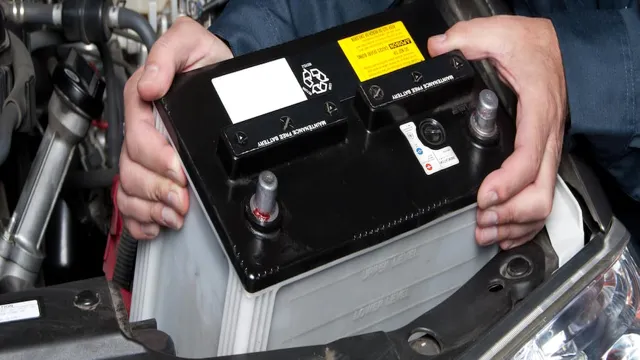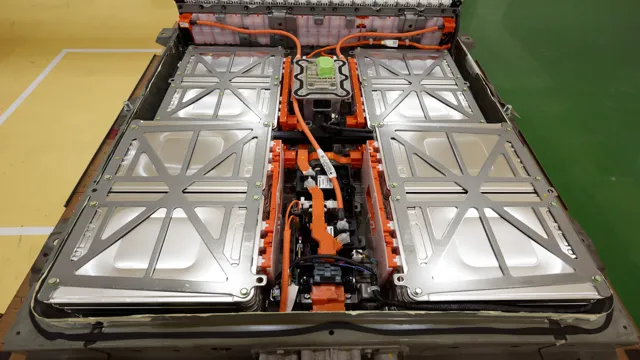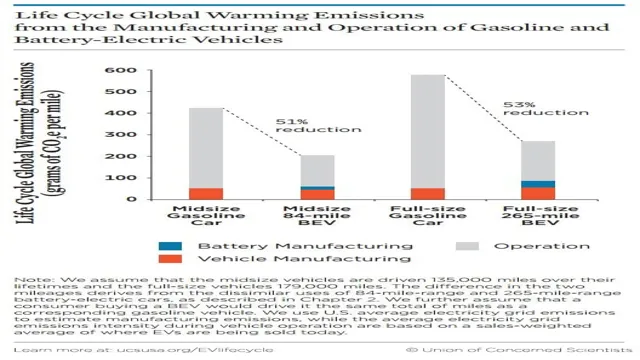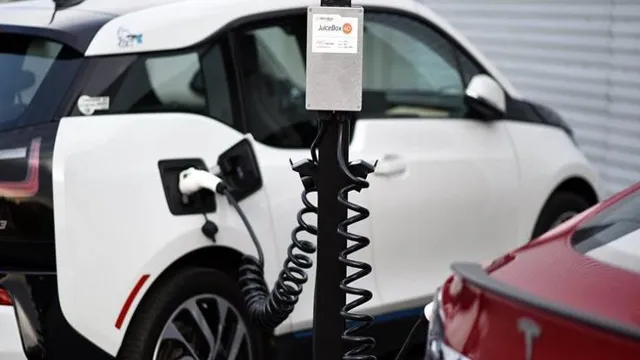Breaking Down the Costs of Electric Car Battery Replacement in the UK: A Comprehensive Guide
Do you own an electric vehicle (EV) and are curious about the cost of replacing its battery? Well, you’re not alone. As EV ownership continues to increase across the UK, more and more drivers are wondering how much they can expect to pay for a battery replacement. Firstly, it’s important to note that the cost of a battery replacement can vary significantly depending on various factors.
These factors include the make and model of your vehicle, the age of your car, and the size and capacity of the battery itself. For example, a battery replacement for a high-end luxury EV such as a Tesla Model S may cost significantly more than a battery replacement for a more affordable electric car such as a Nissan Leaf. Additionally, newer EVs tend to have more expensive batteries than older models.
On average, a replacement battery for an EV in the UK costs between £5,000 and £7,000. This may seem like a hefty sum, but it’s important to remember that EV batteries tend to last a long time – typically between 8 and 10 years, if not longer. This means that, in most cases, you’re unlikely to need to replace your battery any time soon.
It’s also worth noting that some manufacturers offer warranties on their batteries, which can cover the cost of a replacement if it fails prematurely. For example, Tesla’s battery warranty covers up to 8 years or 120,000 miles, whichever comes first. In summary, while the cost of a battery replacement can vary, the good news is that you’re unlikely to need to replace your EV battery any time soon.
And if you do experience any issues, there’s a chance that your manufacturer’s warranty will cover the cost.
Factors Affecting EV Battery Replacement Costs
When it comes to the cost of replacing electric car batteries in the UK, there are several factors that come into play. The first is the type of battery that the vehicle uses. Lithium-ion batteries, for example, are more expensive to replace than lead-acid batteries.
The age of the vehicle and the battery also plays a role. As the battery ages, its performance will decline, which can lead to increased replacement costs. The cost of replacement also depends on the make and model of the electric vehicle.
Some manufacturers offer warranties that cover the cost of replacement, but these warranties vary in duration and coverage. Another factor that affects the cost of replacement is the availability of replacement parts and certified technicians who can install them. All of these factors should be taken into consideration when evaluating the cost of replacing an electric car battery in the UK.
Battery size and capacity
When it comes to electric vehicles, the battery size and capacity play a crucial role in determining the replacement costs. Batteries are the most expensive component of EVs, and the larger the battery, the higher the replacement cost. The cost of replacing an EV battery depends on various factors, such as the make and model of the vehicle, the size and capacity of the battery, and the technology used in the battery.
As the technology advances and the battery capacity increases, the cost of replacement may come down. However, it’s important to note that the battery’s lifespan also plays a role in the replacement cost. If the battery lasts longer, the replacement cost will be lower.
In general, EVs with larger batteries that offer longer driving ranges tend to have higher replacement costs than those with smaller batteries since more advanced technology is required to build them. So, before purchasing an EV, it’s crucial to consider the battery size and capacity and how it can affect replacement costs in the future.

Type of electric car
When it comes to electric cars, the type of battery used can greatly affect replacement costs. Lithium-ion batteries are the most common type of battery used in electric cars and can cost anywhere from $5,000 to $10,000 to replace. However, newer models of electric cars are beginning to use solid-state batteries, which offer greater energy density and longer lifetimes but come with a higher price tag.
Additionally, the size of the battery pack can also affect replacement costs. As battery technology continues to evolve, we can expect to see improvements in both performance and cost, making electric cars an increasingly practical and affordable option for drivers.
Type of battery technology
When it comes to electric vehicles, one factor that can greatly impact the cost of battery replacement is the type of battery technology used. Currently, there are three main types of EV batteries on the market: nickel-metal hydride (NiMH), lithium-ion (Li-ion), and solid-state. NiMH batteries are the oldest and least expensive option, but they are also the heaviest and have a lower energy density.
Li-ion batteries, on the other hand, are the most common type used in EVs today due to their high energy density and relatively low cost. Lastly, solid-state batteries are the newest technology and offer even higher energy density, but they are currently the most expensive option. Ultimately, the type of battery technology used will impact the cost of replacement, but by weighing the pros and cons of each type, EV owners can make an informed decision when it comes to battery replacement.
Battery age and condition
Battery age and condition are significant factors affecting the replacement cost of electric vehicle batteries. As with any battery, over time, the amount of charge it can hold reduces, leading to a shorter range on a single charge. This decrease in range can make it challenging to justify the cost of replacing the battery, which can be expensive.
The current battery technology in most EVs has an estimated lifespan of around 8-10 years, depending on the model and brand. However, the condition and usage patterns of the battery also play a vital role in determining its life span. If an EV battery is subjected to high temperatures, rapid charging or frequently fully discharging, the battery’s life is significantly affected and will need to be replaced sooner.
Therefore, it is essential to ensure that your EV’s battery is well-maintained and avoid factors that reduce its lifespan, resulting in high replacement costs.
Average Cost of EV Battery Replacement in the UK
If you’re considering buying an electric vehicle (EV), one concern you may have is the cost of replacing an EV battery in the UK. As with any vehicle, an EV battery will eventually need to be replaced due to degradation over time. The cost of replacing an EV battery depends on several factors such as the make and model of the vehicle.
In the UK, the average cost of replacing an EV battery is estimated to be between £3,000 and £8,000. However, this cost could vary widely depending on the specific vehicle you own. It’s worth noting that many EV manufacturers offer warranties on their batteries, which could cover the cost of replacement during the warranty period.
Additionally, some EV manufacturers offer battery leasing programs, which could be more cost-effective for those who don’t want to bear the full cost of battery replacement.
Examples of common EV models and their battery replacement costs
When considering buying an electric vehicle (EV), one of the biggest concerns for potential buyers is the cost of battery replacement. The good news is that most EV batteries have a warranty of at least 8 years or 100,000 miles, whichever comes first, so the likelihood of having to replace the battery during that time is low. However, if the time comes and you need a battery replacement, it is important to know the average cost.
In the UK, the average cost of EV battery replacement ranges from £3,000 to £10,000, depending on the make and model of the car. For example, a replacement battery for a Nissan Leaf could cost around £5,000, whereas a Tesla Model S battery replacement could cost upwards of £8,000. It is important to keep in mind that these prices do not include labor costs, which can add even more to the total cost.
While the cost of EV battery replacement may seem high, it is important to remember that EVs have lower running costs and maintenance costs than traditional petrol or diesel cars. Additionally, as technology improves and EVs become more prevalent, the cost of battery replacement is expected to decrease.
Cost comparison of replacing vs. repairing a battery
When it comes to electric vehicles, the battery is one of the most critical components. However, as with any type of battery, it will eventually require replacement. In the UK, the average cost of EV battery replacement ranges from £2,500 to £8,000, depending on the make and model of the vehicle.
On the other hand, repairing a battery can cost significantly less, with prices ranging from £500 to £3,000. It’s important to weigh up the cost of replacing vs. repairing a battery, as well as the age and overall condition of your vehicle.
If your EV is still relatively new and in good condition, it may be more cost-effective to replace the battery rather than incur lower but recurring repair costs. However, if your vehicle is older, the cost of repairing a battery may be a more economical approach. Ultimately, the decision to replace or repair your EV battery will depend on your needs and budget.
Ways to Reduce EV Battery Replacement Costs
The cost of replacing an electric car battery in the UK can be a significant expense for many EV owners, but there are ways to reduce these costs. One way is to take proper care of your battery by following manufacturers’ guidelines for charging, storing, and using it. Regular maintenance, such as cleaning the battery and ensuring it is not exposed to extreme temperatures, can also extend its lifespan.
Additionally, you can invest in a battery warranty or insurance policy, which can mitigate some of the financial risks associated with battery replacement. Another option is to consider purchasing a used EV or leasing one, which often includes a warranty and maintenance plan that covers battery replacement costs. Additionally, purchasing a vehicle with a modular battery system can allow you to replace individual battery cells, rather than the entire battery pack, which is typically more expensive.
By taking these steps, EV owners can minimize the cost of replacing their car’s battery and enjoy the many benefits of electric vehicle ownership without breaking the bank.
Regular battery maintenance and care tips
As electric vehicles (EVs) become increasingly popular, it’s important to consider ways to reduce potential replacement costs for their batteries. Regular battery maintenance and care can help prolong their lifespan. One way to do this is to keep the battery charged between 20% and 80%.
Charging it fully or letting it run to empty can cause unnecessary wear and tear. In addition, storing the car in a cool, dry environment can help prevent overheating and damage to the battery. It’s also important to keep an eye on the battery’s temperature and avoid exposing it to extreme weather conditions.
Regular check-ups with a trusted mechanic can help ensure that the battery is functioning properly and prevent any potential issues. With proper care and maintenance, EV battery replacement costs can be significantly reduced, making electric vehicles a more cost-effective and sustainable choice for consumers.
Consider insurance options and warranties
One way to reduce the cost of replacing the battery in your electric vehicle is to consider insurance options and warranties. Many EV manufacturers offer battery warranties that cover the cost of a replacement or repair if it fails within a certain number of years or miles. It’s important to read the fine print and understand what’s covered and for how long.
You may also want to consider purchasing extended warranties for extra protection. Additionally, some insurance companies offer specialized coverage for EV batteries at an affordable rate. This can provide peace of mind and protection against unexpected expenses.
So, before buying an electric vehicle, be sure to research battery warranty options and consider purchasing specialized insurance coverage to save costs in the long run.
Final Thoughts
When it comes to purchasing an electric car, many might worry about the cost of replacing the battery. The truth is, it’s not a small expense, and it can even be a significant portion of the car’s value. However, the good news is that most electric car batteries come with a warranty of around eight years or 100,000 miles, so you shouldn’t have to worry about replacement costs during that time.
After that period, the cost of a new battery will depend on the type of car and the size of the battery. Replacing a battery pack for a larger car such as a Tesla Model S could set you back as much as £15,000, while smaller batteries for models like the Nissan Leaf could cost less. It’s also worth noting that as the technology becomes more widespread, it’s likely that prices for replacements will come down.
Ultimately, replacing an electric car battery is an investment, and for many, the benefits of driving electric far outweigh the associated costs.
Conclusion
In conclusion, the cost of replacing an electric car battery in the UK can vary widely depending on the make and model of the vehicle, with some costing as low as £1,000 and others reaching upwards of £10,000. While this may seem like a steep price to pay, it is important to remember that electric cars offer significant long-term savings in terms of fuel costs and environmental impact. Plus, with improvements in battery technology and increasing competition in the market, we can expect to see lower and more competitive prices in the future.
So, if you’re considering purchasing an electric car, don’t let the cost of replacing the battery scare you away – the many benefits are certainly worth it!”
FAQs
How much does it cost to replace an electric car battery in the UK?
The cost of replacing an electric car battery in the UK varies depending on the make and model of the car. On average, the cost can range from £1,000 to £5,000.
Is it worth replacing an electric car battery?
In most cases, it is worth replacing an electric car battery as it can extend the life of the vehicle and help save money in the long run. It is important to weigh the cost of the replacement against the value of the vehicle and the cost of a new one.
How long does an electric car battery last in the UK?
The lifespan of an electric car battery can vary depending on the make and model of the vehicle, as well as usage patterns. Generally, electric car batteries can last anywhere from 8 to 15 years.
Can you recycle an electric car battery in the UK?
Yes, it is possible to recycle an electric car battery in the UK. There are several recycling facilities that specialize in the proper disposal and recycling of electric car batteries. It is important to dispose of them properly to prevent environmental harm.






